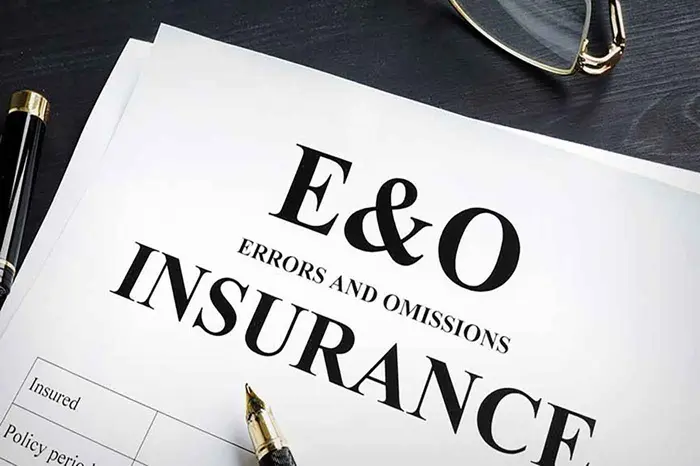Life insurance provides financial security to your loved ones after your passing. However, many people are unaware of whether they have an active policy. This could be due to forgetfulness, lost documents, or simply not being informed by a family member who purchased the policy. If you suspect you might be a beneficiary or policyholder but are unsure, there are systematic ways to find out.
This guide will walk you through the steps to determine if you have a life insurance policy, whether it belongs to you or a deceased loved one.
Understanding Life Insurance Policies
Before searching for a policy, it’s helpful to understand the different types of life insurance:
- Term Life Insurance: Provides coverage for a specific period. If the policyholder passes away during the term, beneficiaries receive the death benefit.
- Whole Life Insurance: A permanent policy that remains active as long as premiums are paid. It also accumulates cash value.
- Group Life Insurance: Often provided by employers as part of benefits packages.
Knowing these distinctions can help narrow down where a policy might be held.
Steps to Find an Active Life Insurance Policy
1. Check Personal Records
Start by reviewing your own documents (or those of the deceased, if applicable). Look for:
- Policy statements or certificates.
- Premium payment receipts.
- Bank statements showing automatic withdrawals for insurance payments.
- Emails or correspondence from insurance companies.
2. Contact Employers and Unions
Many people have group life insurance through their workplace. If the policyholder was employed, reach out to:
- Current or former employers.
- Labor unions or professional associations.
- Human resources departments for past companies.
3. Search Financial and Legal Documents
Life insurance policies are often mentioned in:
- Wills and trusts.
- Loan agreements (some lenders require life insurance as collateral).
- Safe deposit boxes or home filing systems.
4. Inquire with Insurance Companies
If you suspect a specific insurer was used, contact them directly. Most companies have procedures to verify policies, especially if you are a beneficiary. Provide:
- Full name and date of birth of the policyholder.
- Social Security number (if possible).
- Approximate dates when the policy might have been active.
5. Use Policy Locator Services
Several organizations help track down lost policies:
- National Association of Insurance Commissioners (NAIC): Offers a free policy locator tool.
- State Insurance Departments: Many states maintain databases of unclaimed policies.
- MIB Group: A service that tracks applications for individual life insurance.
6. Review Tax Returns and Financial Statements
Life insurance policies may leave traces in:
- Tax returns (interest from cash-value policies may be reported).
- Financial advisor or accountant records.
- Old bank statements showing premium payments.
7. Check with the Medical Information Bureau (MIB)
The MIB keeps records of life insurance applications. While they don’t store policy details, they can confirm if someone applied for coverage.
8. Search Unclaimed Property Databases
If a policyholder passed away and beneficiaries were unaware, the death benefit may be held as unclaimed property. Check:
- State unclaimed property offices.
- The National Association of Unclaimed Property Administrators (NAUPA).
What to Do If You Find a Policy
Once you locate a policy, take the following steps:
- Verify Its Status: Confirm whether the policy is active, lapsed, or paid out.
- Contact the Insurer: Provide necessary documentation to claim benefits if you’re a beneficiary.
- Update Beneficiaries: If you’re the policyholder, ensure beneficiary information is current.
- Consult a Financial Advisor: Understand tax implications and payout options.
Common Challenges in Locating Policies
- Name Changes: Marriage or legal name changes can make policies harder to trace.
- Company Mergers: Insurers may have been acquired, making records harder to access.
- Lost Documentation: Physical policies can be misplaced over time.
- Uninformed Beneficiaries: Some policyholders never inform their beneficiaries.
The Importance of Keeping Policies Organized
Once you locate a life insurance policy, it’s crucial to maintain proper records. Store physical copies in a secure, fireproof location, and keep digital backups if possible. Inform trusted family members or beneficiaries about the policy’s existence and where documents are kept. This prevents future difficulties in accessing the policy and ensures a smooth claims process when needed.
Handling Disputes or Unclear Beneficiary Designations
If multiple potential beneficiaries exist or if the policyholder’s intentions are unclear, disputes may arise. In such cases, legal assistance may be necessary to interpret the policy terms or resolve conflicts. Insurance companies typically follow the beneficiary designation on file, but if none exists, state laws determine payout distribution. Consulting an estate attorney can help clarify rights and obligations.
The Role of State Regulations in Unclaimed Policies
Each state has laws governing unclaimed life insurance benefits. Some require insurers to regularly check the Social Security Death Master File to identify deceased policyholders and locate beneficiaries. If a company fails to do so, beneficiaries may still claim benefits, sometimes with interest. Researching your state’s insurance regulations can provide additional avenues for recovering unpaid benefits.
Preventative Measures for Policyholders
To avoid leaving beneficiaries unaware, policyholders should periodically review and update their policies. This includes confirming that insurers have current contact details for beneficiaries and ensuring that estate planning documents reference any active policies. Regularly communicating with family members about financial arrangements can prevent policies from becoming lost or forgotten.
Conclusion
Discovering whether you or a loved one has a life insurance policy requires patience and thorough investigation. By reviewing personal records, reaching out to employers, using policy locator services, and checking unclaimed property databases, you can uncover forgotten or unknown policies.
If you confirm the existence of a policy, ensure it’s active and that beneficiaries are correctly listed. Consulting a financial professional can help navigate the claims process and maximize the benefits for your family’s future security.
Taking these steps ensures that no life insurance policy goes unclaimed, providing peace of mind and financial protection for those who need it most.
Related Topics:
What Is The Best Health Insurance In Illinois

































